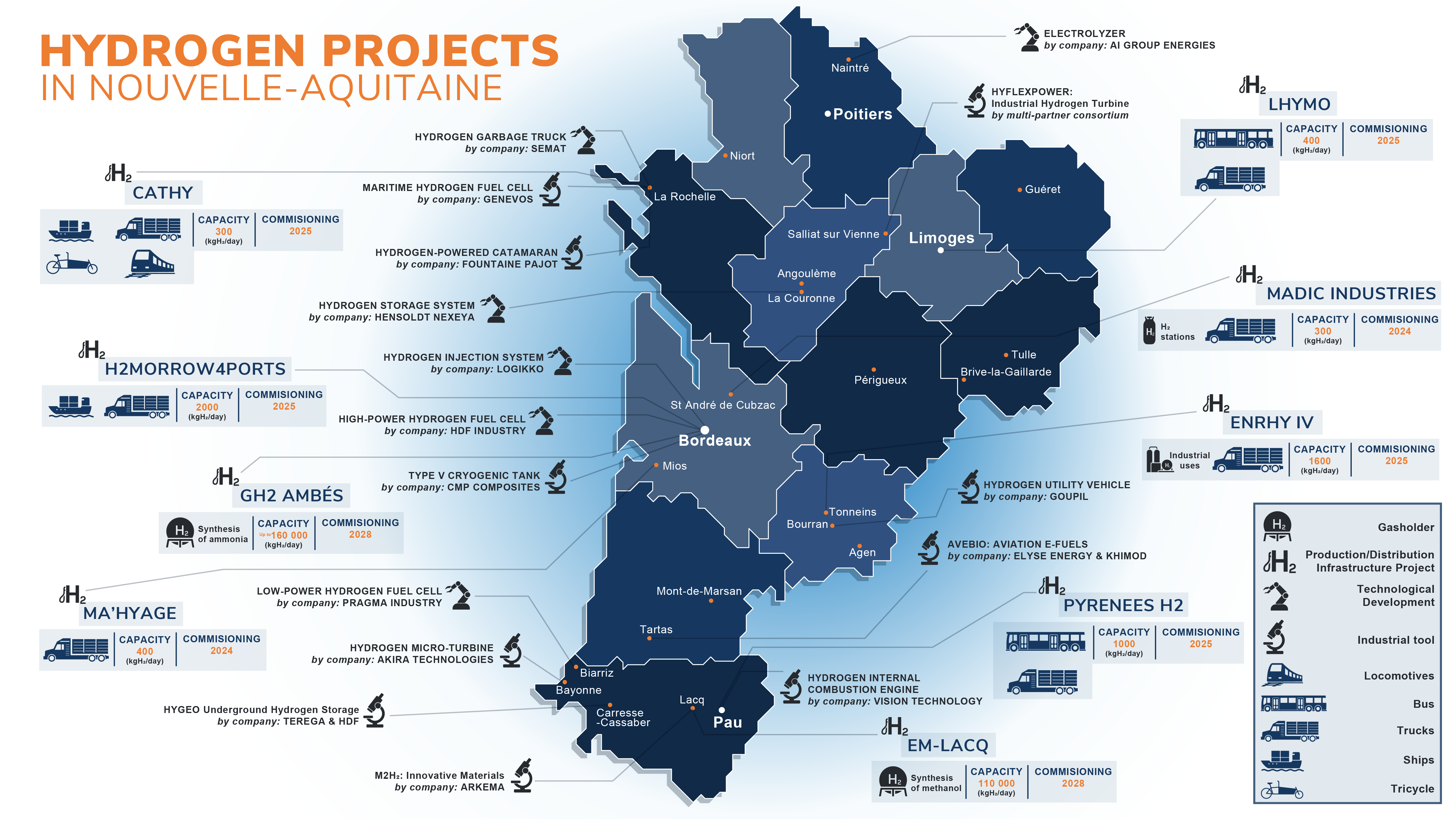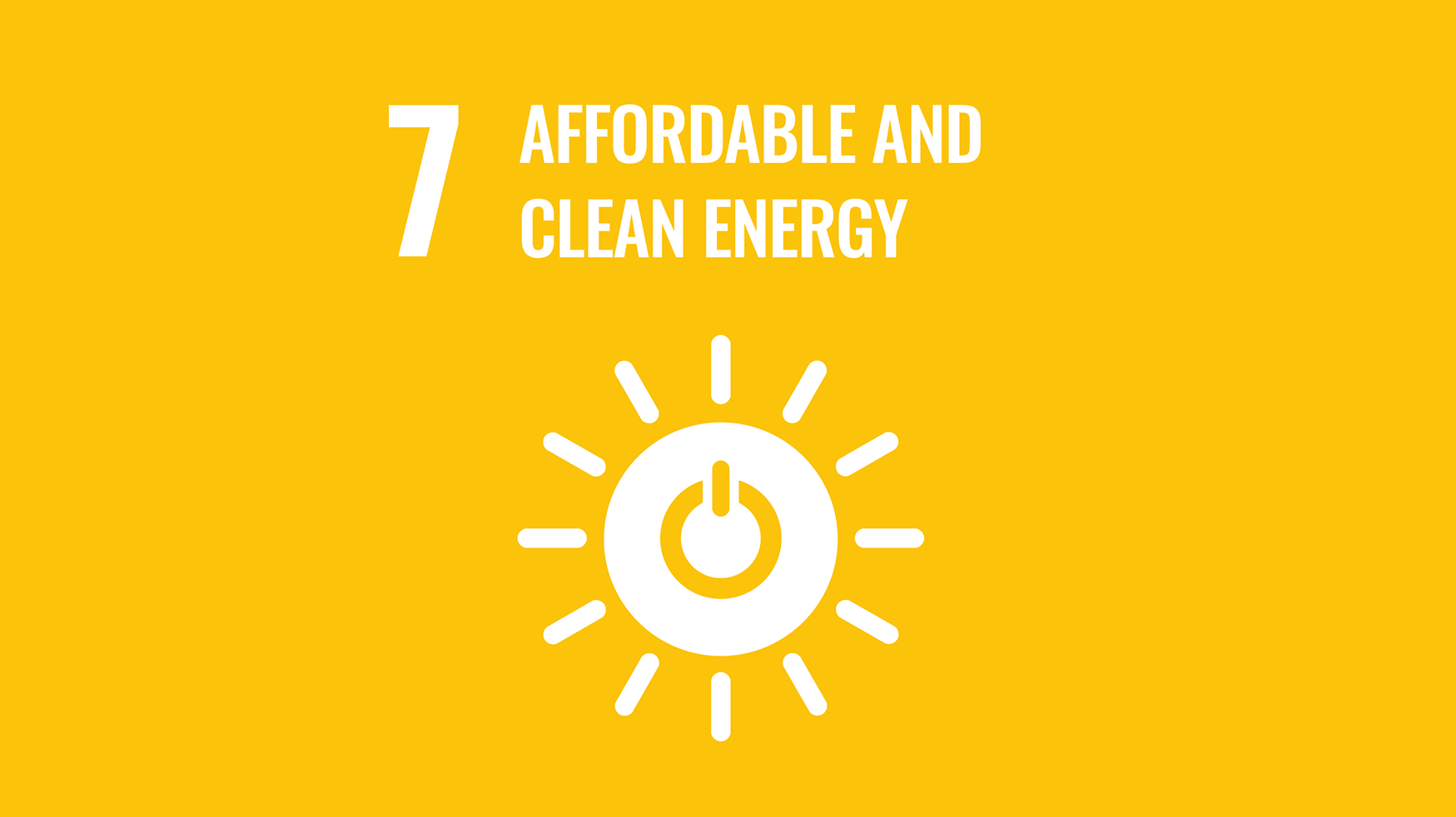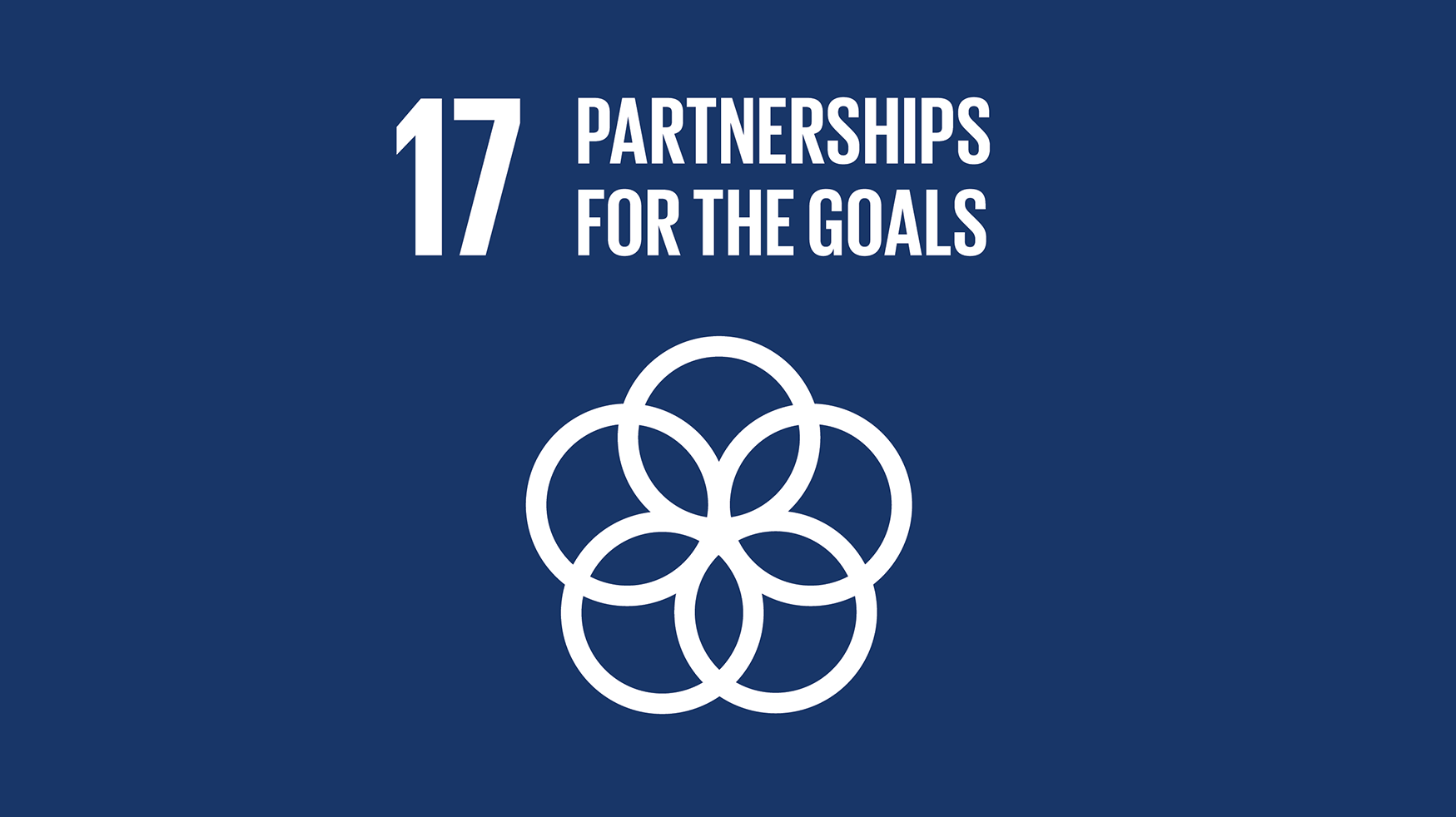
The Nouvelle-Aquitaine Region (RNA) is the largest region in France, covering 12 departments and is home to approximately 6 million people. In 2019, the RNA launched the Néo Terra strategy, focused on ecological transition, which includes the establishment of a comprehensive green hydrogen ecosystem that involves production, infrastructure development and market creation, in order to become a key player in the field. Leveraging regional resources such as biomass, hydroelectric power, and existing industrial infrastructure, the RNA aims to incorporate green hydrogen into its transport systems, directly reducing emissions and fostering energy independence.
With the view of operationalising RNA's hydrogen strategy and preparing related projects, the European Investment Bank (EIB), under the Framework Agreement in support of the EIB advisory activities (EIBAS) inside and outside the EU-27, and more specifically under Lot 3: Mobility, created the Hydrogen Operational Plan and Project Preparation Support for the RNA (2023–2024). This Project focused on supporting the RNA in exploring the production, transport, storage, distribution and use of green hydrogen and its derivatives for heavy road, river and maritime mobility.

Implementation
Under this project, we provided strategic planning, project management and stakeholder engagement services. We conducted a comprehensive analysis of regional hydrogen ecosystems, employing multi-criteria analysis and assessing project feasibility and future impact. We supported the analysis of forward-looking scenarios of the hydrogen ecosystem in RNA and contributed to the definition of the region's role within the sector. We also assisted in the identification of the necessary structural, organisational and financial instruments, prioritising projects and preparing funding applications to the EIB and the EU. Our proficiency in financial modelling allowed the development of detailed and viable business plans. The approach used enabled us to refine objectives based on project maturity, aligning with regional goals. Through regular coordination and proactive risk management, we ensured timely delivery, fostering collaboration and alignment with the evolving ambitions of regional authorities and stakeholders of the Nouvelle-Aquitaine Region.
The assignment was divided into two phases. Under the first phase, Operationalise the Hydrogen Strategy of the Region, we assessed the state of play of national and international strategies for the use of low-carbon hydrogen in the mobility sector, as well as existing support mechanisms to gain a comprehensive understanding of the region's potential ambitions and strategic directions in this area. Moreover, the first phase involved getting an overview of existing initiatives in the region, and through an informed decision-making based on a multi-criteria approach, identifying the hydrogen projects that would have the greatest impact.
The second phase, Assist in the preparation of priority projects for funding application, consisted of offering support for the development and funding seeking of the three following selected projects:
- SMO Solar Project - the SMO (‘Solar Microwave Process’) technology is a compact, autonomous processor that uses the sun as its main source of energy to transform waste and/or biomass into hydrogen and green energy, with a negative CO2 footprint. The project involves building two €30m plants (and five modules) each in the RNA and NUM SMO Technologies, in charge of the project, was seeking to secure the financing required for the construction of these plants.
- H2 Dordogne Project - the H2 Dordogne project is an initiative aimed at developing an infrastructure for the production of green hydrogen by electrolysis in the Bergerac area, in the Dordogne. Overall, the project will enable the production of two tonnes of hydrogen per day.
- Bordeaux Energies Water Environnement and Synergies in Industrial and Port Zones (Bees-ZIP) - Bees-ZIP is an association of various public and private institutions with the aim to conduct the initial studies needed to define decarbonisation trajectories and the pre-feasibility of a decarbonised hydrogen hub at the Port of Bordeaux.
Impact
Our technical assistance contributed to:
- Position the RNA as a leader in green energy, with the potential to drive economic growth, job creation, and the development of a sustainable energy ecosystem, particularly in heavy mobility sectors, over the next few years.
- Foster energy independence by utilising local renewable resources, thereby reducing reliance on external energy supplies and increasing energy security for the region.
- Long-term benefits for local communities, such as job opportunities in the green economy and improvements in regional infrastructure, ultimately fostering a more resilient and sustainable local economy.
- Reducing greenhouse gas emissions, advancing the region’s ecological transition goals and aligning with EU climate targets for 2030, 2040, and 2050.
With the vision of the RNA’s ambition on the subject of low-carbon hydrogen for heavy mobility, which comprises providing the region with a network of refuelling stations to meet the anticipated demand for low-carbon hydrogen by 2030, and accelerating the conversion of captive public fleets to low-emission vehicles, we identified six potential postures that the RNA could adopt to move towards achieving its ambitions. For each potential posture, specific characteristics were given in order to help the Region determine which one(s) it deems most appropriate to adopt in light of its ambitions and constraints:
- For the SMO Solar Project, we prepared an information memorandum with a standard presentation designed to make a clear and convincing case for the soundness of the project. Moreover, we developed a reworked business plan as a cornerstone of the funding application, ensuring compliance with FAST standards.
- For the H2 Dordogne project, we conducted a comprehensive project review encompassing prospective, structural and viability studies.
- For the Bees-ZIP Project, based on the analysis of available documentation and interviews, we issued recommendations on contractual, tax and investment issues.
SDGs
This action aligns with the following SDGs:





